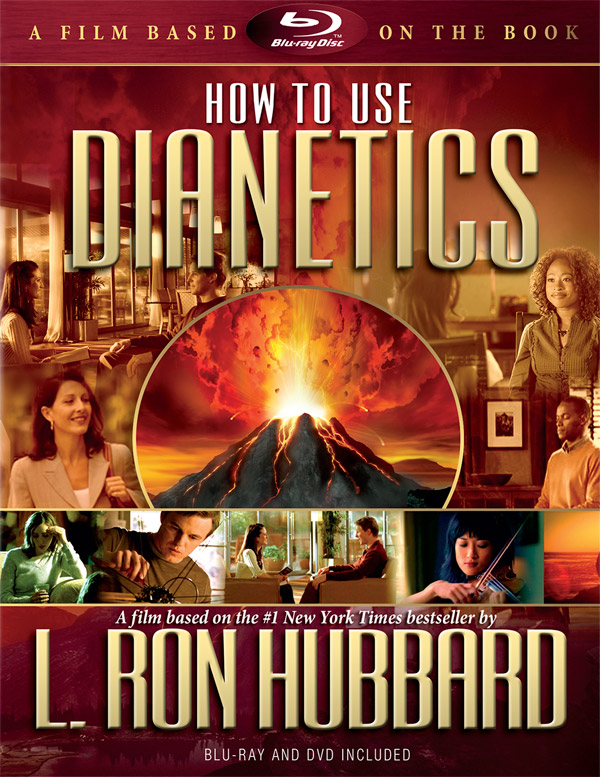Little Known Questions About Dianetics.
Little Known Questions About Dianetics.
Blog Article
Dianetics for Dummies
Table of ContentsA Biased View of DianeticsSome Known Facts About Dianetics.Dianetics Can Be Fun For AnyoneThe Dianetics Diaries
I could not ever before not intend to get anything that enters your mind for you- if it was or else, I wouldn't be sitting here with you, doing this. I not only could never ever have a trouble, or not intend to hear something that enters your mind for you, but I'm totally anxious to recognize every idea, every thought, every image or sensation that arises or manifests for you- don't ever believe or else, and if somehow you do, please just allow me recognize! Sometimes, you may have a thought, and picture, idea or incident appear that does not seem to respond to the question, or associate to it, yet however, always do inform me regarding it, and as we proceed, the importance will certainly arise for you.This is fundamental in the basis of processing, and the subject of this conversation: the fundamental duties of the counselor and the client: The fundamental role of the counselor is, contrary to "standard training", not to manage, which implies to impose and/or inhibit, yet to rather function from the basis of EMPOWERING THE CLIENT.

Get This Report on Dianetics
John Mcmasters revealed this basic reality splendidly well in among his lectures on Power handling, in which he explains just how he was asked what this "special flair" was that he had for providing such fantastic sessions; he needed to think of that for a moment, and identified that it was what he wasn't doing, as well as what he was doing: he had not been assessing, judging, computer, or as a matter of fact, creating any type of ideas, let alone spoken expressions, after giving the command and while waiting for the PC to finish their solution to their contentment; he was, simply and only, being present with the computer, and entirely interested.
The function of the counselor, demonstrated; that was his "unique flair". I have actually had my own experience which instructed me this well, very beforehand in the video game. In 1982, having lately completed my training and teaching fellowship on New Period Dianetics, I was running this on a PC, and there was a factor in the session where (being a little bit damp behind the ears not yet having several hours under my belt as an expert auditor) the computer appeared to be "taking also lengthy" to share anything vocally after I provided him a command.
This trick turned out to be one of the most important payment that John ever made to the topic of therapy or auditing (Dianetics). In my simple viewpoint, it is the greatest contribution that any individual has ever before made to these subjectsthe application is completely non-judgemental, non-evaluative, and without any kind of idea, guidance or opinion.no preconditioned program for individuals, or 'levels' that they should do
In Idenics, the only source of details about a customer is the individual client. In Scientology we prided ourselves on not assessing for people. But all that truly suggested was that the auditor did not vocally assess for the PC in session. The registrars and ethics policemans reviewed for the PC.
Not known Facts About Dianetics

Any person that had actually ever before seen John audit could not assist but notice an one-of-a-kind high quality in his auditing."The customer's fundamental role is to be there with the function of moving in the instructions of their spiritual objectives, and to freely and fully share and experience whatever shows up for them in answering the inquiries and implementing the instructions in the processing.
This is something to procedure as required. Yet additionally, individuals often have prior experience and/or indoctrination in about his auditing/processing which, in some ways, and to some degrees, in fact misguides them right into attitudes, concepts and actions patterns that prevent the full realization of these roles, and so they will often tend to prevent the expressing of what enters your mind, as in the instances given over. * The first, and probably foremost examples of mis-indoctrination leading to much less than totally smooth and efficient sessions, can be discovered in certain facets of the training routines, or "TR's":"TR's" are commonly an individual's very first, or a minimum of early, experience in Scientology, and while I will take place to explain what I see as the imperfections in concept and technique, nevertheless, often tend to be significantly therapeutic, done as they are offered (Hubbard firmly insists that "TR's are not refining, they are educating", but factually, they are both processing AND training)
There is no "flunking", and no rejection of the reality of this being handling. The emphasis, as it ought to be, is on experiencing the other person's visibility.
The Main Principles Of Dianetics

Report this page